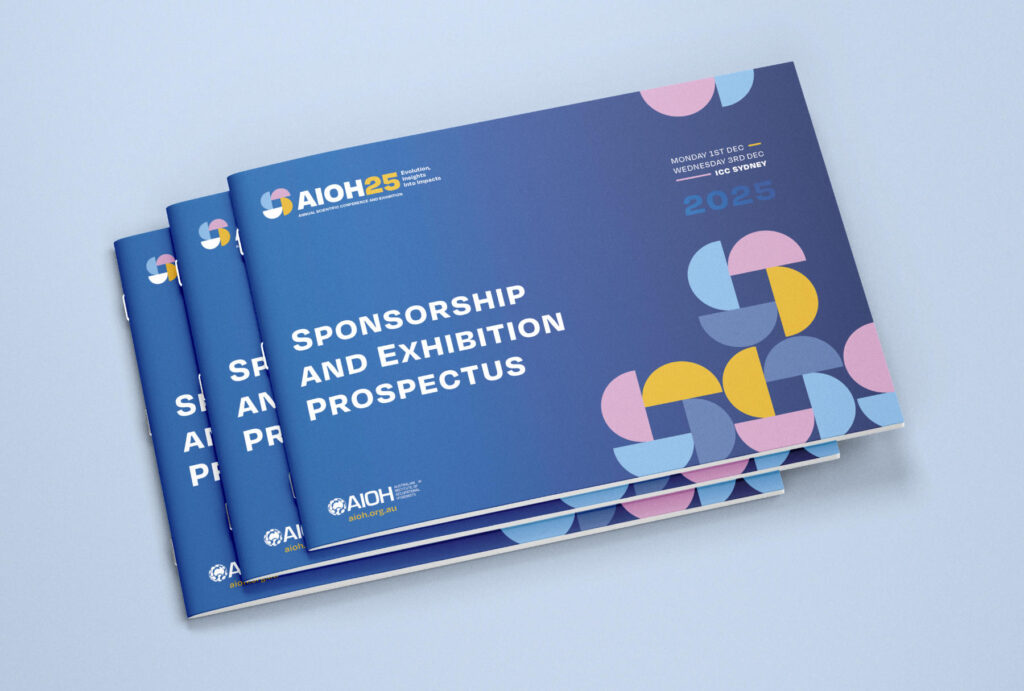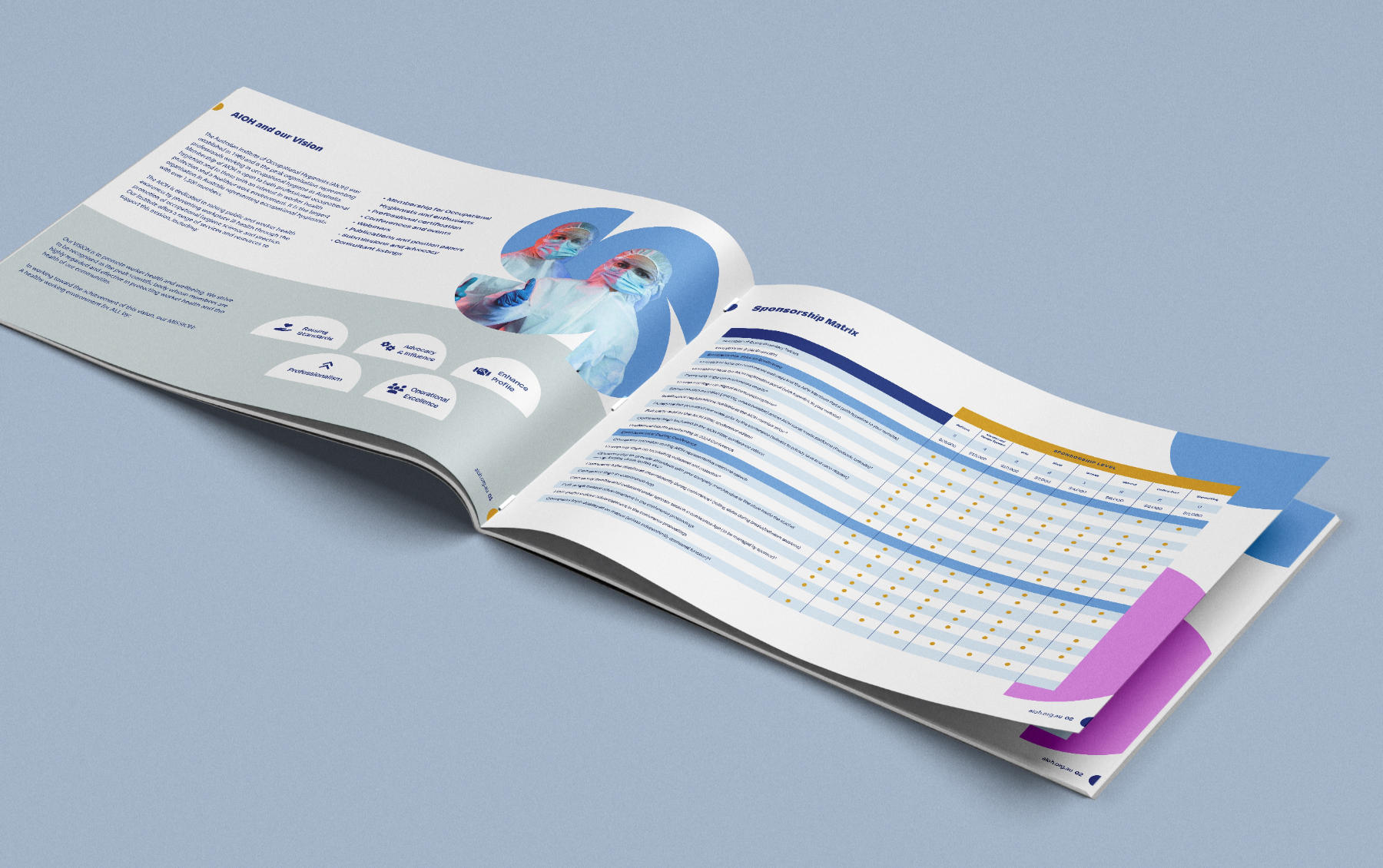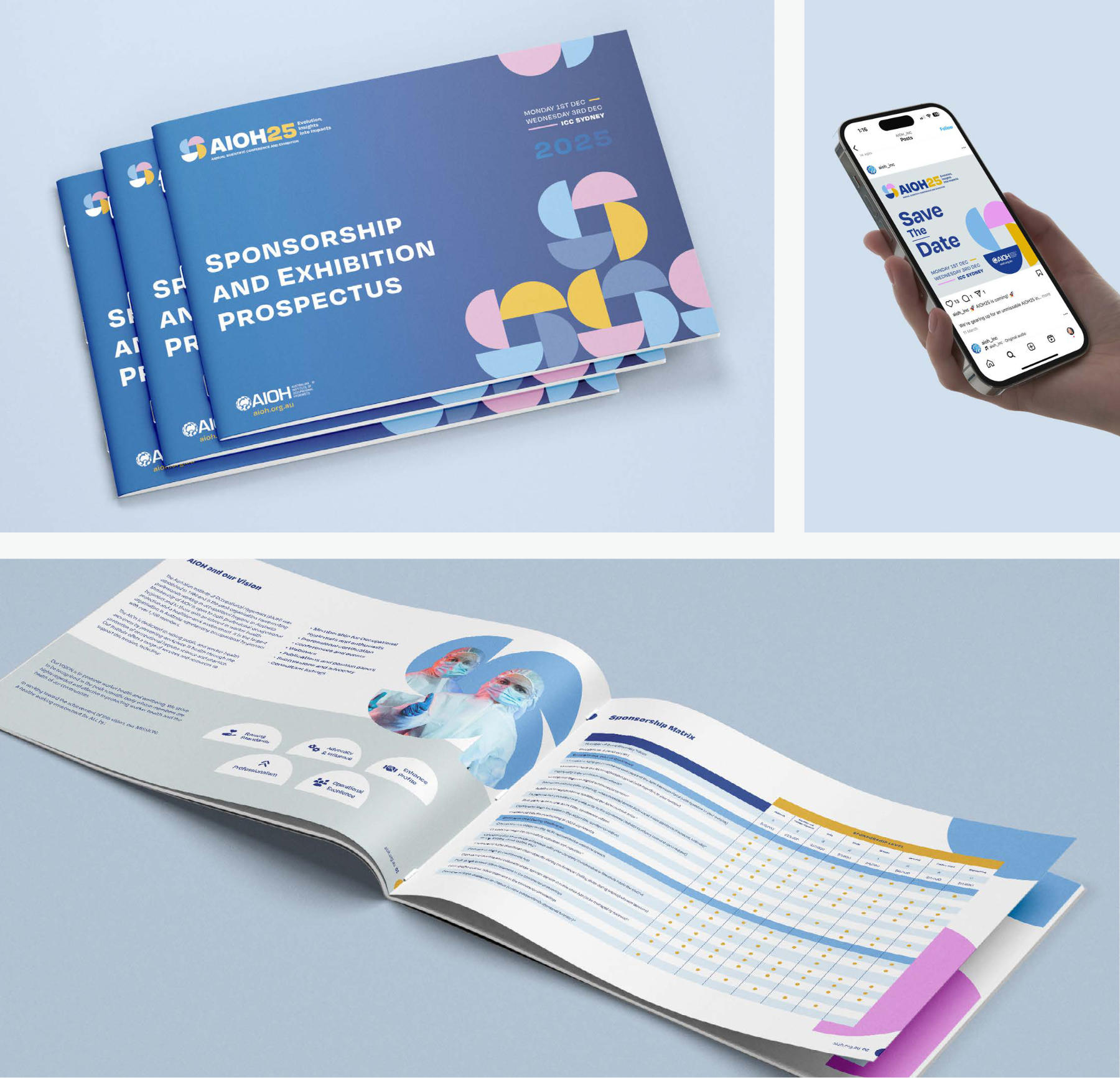How to create a memorable corporate event branding experience.
Successful corporate event branding creates a unique event identity that not only captures attention but also reinforces your brand message and values.
At Christie Davis Design, a leading Melbourne design studio, we collaborate with event teams to develop strategic, visually compelling corporate event design solutions.
From sponsorship prospectuses to event signage and digital assets, we ensure that every touchpoint contributes to achieving the event goals and delivers a memorable experience for attendees.
Curious about the impact of powerful event branding and how it can leave a lasting impression? Read on…
How does a successful corporate event drive long-term business success?
More than just logos and colours, strong branding for corporate events builds trust, aligns with your business goals, and ensures that every element of the event experience – digital, print, and in-person – is part of something purposeful.
A well-branded event fosters a cohesive experience, offering attendees the visual cues they need to instantly recognise and feel that they’re exactly in the right place from the moment they show up.
By aligning with specific, measurable, achievable, relevant, and time-based (SMART) goals, corporate event branding can serve as an extension of your brand, delivering meaningful stakeholder value.
Long-term business outcomes can include:
- Supporting business growth – strong event branding fosters credibility and recognition, making it easier to attract new clients, partners, or investors.
- Increasing Lifetime Customer Value (LTV) – when attendees connect with your brand during the event and post event, they are more likely to engage with your products or services in the long run.
- Boosting brand advocacy – attendees can turn into brand ambassadors who share their positive impressions with others, amplifying your reach.
What to consider before designing a corporate branding experience
Careful deliberation of key essential elements is the secret to success. In the lead-up to the design process, consider:
The Type of Event
Different strategies are required for different types of corporate events. From conferences and industry events to a product launch and creating networking opportunities, think about what type of event best aligns with your brand and your goals.
The Audience
Who are the attendees? Are they senior-level professionals, young creatives, industry experts, or a diverse mix of participants? Knowing the demographic details (e.g., age, professional, and interests) of your audience will help tailor your branding to their preferences and expectations.
The Audience’s Goals
What are the attendees looking to achieve by attending your event? Are they there for networking opportunities, to learn something new, or to discover a product and service? Understanding their motivations will be beneficial for creating a unique brand experience. One that speaks directly to their needs and desires, making your event more appealing.
The 4 stages of a corporate event branding project
Effective corporate event branding requires a structured rollout to ensure consistency and impact. At Christie Davis Design, we guide clients through a four-stage process. From initial concept development to on-site execution, we ensure that every touchpoint will align with your brand identity and therefore contribute to event success.
Stage 1: Defining Event Themes and Concepts
- The event planners begin by selecting a theme that reflects the brand’s event objective and resonates with attendees. This is especially important for annual events, where branding should feel fresh while maintaining consistency.
- We develop two creative directions, usually showcased through Save-the-Date invitations, allowing clients to choose the best fit for their goals.
Stage 2: Designing Key Event Collateral
- Once the creative direction is selected, we establish a full suite of branded materials to create a cohesive experience while allowing for variation between pieces to keep it interesting.
- Key assets may include: sponsorship prospectus, event programs, signatures, event website, web banners for event marketing, and social media tiles.
Stage 3: Branding Rollout for Information Distribution
- Most corporate event planning involves distributing large amounts of information. Branding helps ensure clarity and engagement.
- This stage can include: sponsorship packages, terms and conditions, event timetables, speaker papers.
Stage 4: On-Site Branding for a Memorable Experience
- As the event date approaches, we prepare final branding elements to ensure a polished and professional look.
- On-site branding include: event signage and media banners, PowerPoint presentation templates, mobile app set up, branded promotional goodie bags.
Important to note: Print production and logistics
- Timing is crucial — each branded item has different production and delivery schedules. Whether managed by the corporate event management team or designer, sourcing quotes and arranging print timelines should be planned well in advance to avoid last-minute issues.
Ready to create an event that stands out?
Branding for corporate events is about storytelling, audience engagement, and ensuring every touchpoint is aligned with your brand identity and goals. From concept to execution, compelling design is the driving force behind the success of your event.
Talk to us.
The team at Christie Davis Design would love to hear about your vision for your next corporate event.
Discover how our custom design solutions can help you elevate your brand, stand out in a competitive space, and leave a lasting impression.


